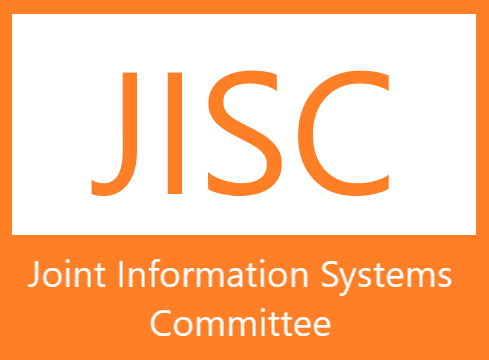Abstract
Background: The COVID-19 pandemic has various unfavorable effects on individuals and the community. This study aims to assess the psychological impact of the COVID-19 epidemic and the subsequent social isolation on the general population of Karnataka, India.
Methods: A web-based cross-sectional survey was conducted in Karnataka from 8 to 14 April 2020 using the snowball technique. The psychological impact was assessed with the help of the nine-item Patient Health Questionnaire-9 (PHQ-9) and seven-item General Anxiety Disorder-7 (GAD-7) questionnaires. IBM SPSS Statistics Subscription version 16.0 was recruited to analyze the data. Descriptive (Mean + Standard Deviation) and bivariate (Pearson chi-square and ANOVA tests) analysis used to present data with the significance level set at less than 0.05.
Results: This study included 1537 participants from 26 cities in Karnataka. About two-thirds of the respondents were undergraduate students (951, 61.9%), females (768, 50.0%), and 40.1% stayed about 15-20 days in social isolation. The prevalence of depression was 47.0%, and anxiety was 41.5%, respectively, among the surveyed sample. After the analysis, the age group 21-30 year old (P < 0.001), females P < 0.001), urban residents (P = 0.021), and the students (P p < 0.001) were significant for depression. However, only the age group 31-40 years was found to be more susceptible to anxiety.
Conclusion: As important as addressing the psychological effects, knowing people at risk of developing mental illnesses will contribute effectively to providing appropriate psychological rehabilitation programs at the right time.
References
- World Health Organization, Novel Coronavirus (2019-nCoV) Situation Report –1, 21 January 2020. Available from: https://www.who.int/docs/default-source/coronaviruse/situation-reports/20200121-sitrep-1-2019-ncov.pdf, [Accessed on 30 August 2020].
- Wang C, Pan R, Wan X, Tan Y, Xu L, Ho CS, Ho RC. Immediate Psychological Responses and Associated Factors during the Initial Stage of the 2019 Coronavirus Disease (COVID-19) Epidemic among the General Population in China. Int J Environ Res Public Health. 2020 Mar 6;17(5):1729. https://doi.org/10.3390/ijerph17051729.
- World Health Organization, WHO Director-General's opening remarks at the media briefing on COVID-19 - 11 March 2020. Available from: https://www.who.int/dg/speeches/detail/who-director-general-s-opening-remarks-at-the-media-briefing-on-covid-19---11-march-2020 [Accessed on 13 April 2020]
- Coronavirus in India: Latest Map and Case Count. Available from: https://www.covid19india.org/ [Accessed 13 April 2020].
- Arakal RA. First COVID-19 case in Karnataka: Techie who returned to Bengaluru from US tests positive, (9 March2020). Available from: https://indianexpress.com/article/cities/bangalore/coronavirus-karnataka-first-case-covid-19-bengaluru-6307223/ [Accessed on 13 April 2020]
- India Today on 24 March 2020. Modi announces lockdown Updates: No panic buying please. Stay indoors, tweets PM. Available from: https://www.indiatoday.in/india/story/pm-modi-address-the-nation-at-8-pm-today-speech-covid-19-coronavirus-live-updates-1659215-2020-03-24 [Accessed on 13 April 2020]
- Ali Jadoo SA. Was the world ready to face a crisis like COVID-19? Journal of Ideas in Health2020;3(1):123-4. https://doi.org/10.47108/jidhealth.Vol3.Iss1.45
- Steptoe A, Shankar A, Demakakos P, Wardle J. Social isolation, loneliness, and all-cause mortality in older men and women. Proc Natl Acad Sci U S A. 2013;110(15):5797-5801. https://doi.org/10.1073/pnas.1219686110
- Cao W, Fang Z, Hou G, Han M, Xu X, Dong J, et al. The psychological impact of the COVID-19 epidemic on college students in China. Psychiatry Res. 2020; 287:112934. https://doi.org/10.1016/j.psychres.2020.112934
- Taylor HO, Taylor RJ, Nguyen AW, Chatters L. Social Isolation, Depression, and Psychological Distress Among Older Adults. Journal of Aging and Health2018; 30(2): 229–246. https://doi.org/10.1177/0898264316673511
- Sim K, Huak Chan Y, Chong PN, Chua HC, Wen Soon S. Psychosocial and coping responses within the community health care setting towards a national outbreak of an infectious disease. J Psychosom Res. 2010;68(2):195-202. https://doi.org/10.1016/j.jpsychores.2009.04.004
- Roy D, Tripathy S, Kar SK, Sharma N, Verma SK, Kaushal V. Study of knowledge, attitude, anxiety & perceived mental healthcare need in Indian population during COVID-19 pandemic. Asian J Psychiatr. 2020; 51:102083. https://doi.org/10.1016/j.ajp.2020.102083.
- Karnataka Population. Available from: http://www.populationu.com/in/karnataka-population [Accessed on 8 April 2020]
- Sample Size Calculator: Understanding Sample Sizes. Available from: https://www.surveymonkey.com/mp/sample-size-calculator/ [Accessed on 5 March 2020]
- Toussaint A, Hüsing P, Gumz A, Wingenfeld K, Härter M, Schramm E, Löwe B. Sensitivity to change and minimal clinically important difference of the 7-item generalized anxiety disorder questionnaire (GAD-7). J Affect Disord. 2020; 265:395–401. https://doi.org/10.1016/j.jad.2020.01.032
- Williams N. The GAD-7 Questionnaire [Review of the test Generalized anxiety disorder (gad-7) Questionnaire, by R. L. Spitzer]. Occupational Medicine2014; 64(3): 224. https://doi.org/10.1093/occmed/kqt161
- Kroenke K, Spitzer RL, Williams JB. The PHQ-9: validity of a brief depression severity measure. J Gen Intern Med. 2001;16(9):606–613. https://doi.org/10.1046/j.1525-1497.2001.016009606.
- Albert PR. Why is depression more prevalent in women? J Psychiatry Neurosci. 2015;40(4):219-221. https://doi.org/10.1503/jpn.150205
- Patten SB, Wang JL, Williams JV, Wang JL, McDonald K, Bulloch ACM. Descriptive epidemiology of major depression in Canada. Can J Psychiatry. 2006; 51:84–90. https://doi.org/10.1177/070674371506000106
- Jones C. Student anxiety, depression increasing during school closures, survey finds. EdSorce, 13 May 2020. Available from: https://edsource.org/2020/student-anxiety-depression-increasing-during-school-closures-survey-finds/631224 [Accessed on 29 August 2020].
- Frasquilho D, Matos MG, Salonna F, Guerreiro D, Storti CC, Gaspar T, Caldas-de-Almeida JM. Mental health outcomes in times of economic recession: a systematic literature review. BMC Public Health2015; 16:115. https://doi.org/10.1186/s12889-016-2720-y.
- Ali Jadoo SA. COVID -19 pandemic is a worldwide typical Biopsychosocial crisis. Journal of Ideas in Health2020;3(2):152-4. https://doi.org/10.47108/jidhealth.Vol3.Iss2.58
- Prabhu N. Bengaluru urban tops state in per capita income, Kalaburagi last, (20 March 2016). Available from: https://www.thehindu.com/news/cities/bangalore/bengaluru-urban-tops-state-in-per-capita-income-kalaburagi-last/article8376124.ece [Accessed 13 April 2020].













